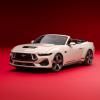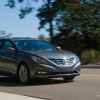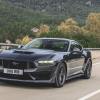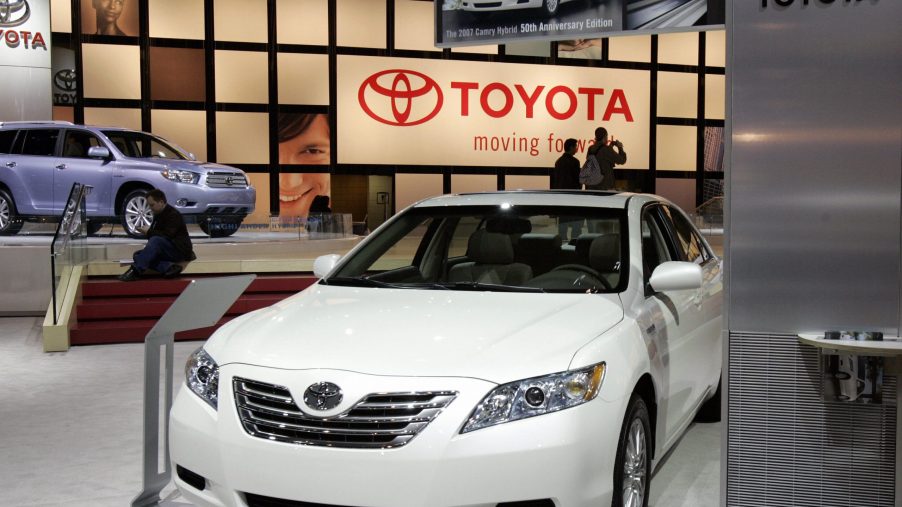
There’s a List of Best Sedans That Is Missing a Few Top Competitors
Over the past several years, automotive sales data seem to suggest that the sedan is on its way out. And SUVs and pickup trucks continue to reign supreme.
But for some buyers, sedans remain the vehicle of choice, especially if slightly less cargo space and less ground clearance aren’t deal-breakers. It’s likely that these buyers will be sifting through various top 10 sedan lists to find the perfect car. And JD Power has published one of these lists but there seem to be a few glaring omissions. What’s missing from the list?
Surprising choices from JD Power
Truth be told, the JD Power top 10 sedan list for 2020 has some unexpected selections. From the Nissan Sentra in the number 10 position, followed by the Volkswagen Jetta, Ford Fusion, and Kia Rio. Then there’s the Chevrolet Malibu at number six, which also was designated the JD Power Award Winner in Initial Quality in the midsize car category.
Following the Malibu is the Dodge Charger in the number five position. At number four, the Nissan Maxima is another JD Power Award Winner in Initial Quality, this time in the large car segment. The Hyundai Accent is the third-best sedan on the JD Power list, followed by the Kia Forte, a Winner in Initial Quality in the compact car category.
Finally, at the top of the list is…drum roll, please…the Chevrolet Sonic. It’s a compact car that Chevy has threatened to discontinue in recent years. Somehow, though, it has persisted for the 2020 model year. Incidentally, the Sonic has the best overall score across all segments, according to JD Power.
A 1.4-liter, four-cylinder turbocharged engine that makes 138 hp powers the Sonic, and it has a six-speed automatic transmission. Android Auto and Apple CarPlay come standard on the Sonic. But advanced safety features such forward collision warning and lane departure warning are optional.
Where are the A-listers?
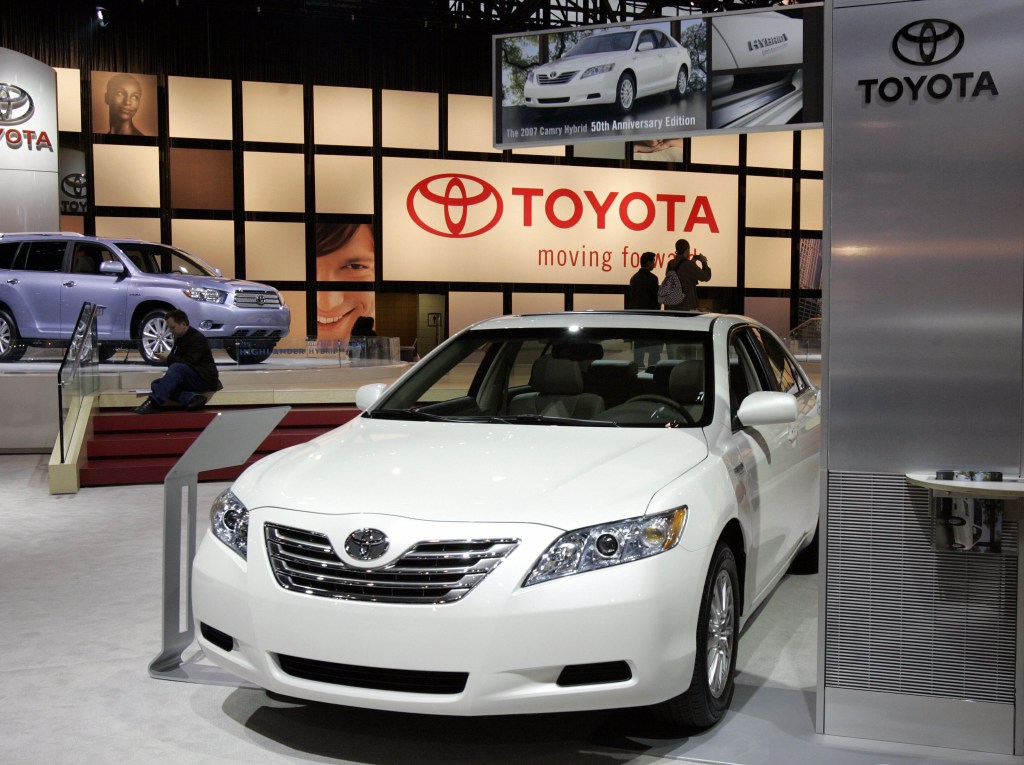
Some entries on the JD Power top 10 list are puzzling because they are neither best-sellers nor specifically acclaimed by the critics. For example, fewer than 14,000 Chevy Sonics were sold in 2019 according to GoodCarBadCar.net. Car and Driver rated it a six out of 10 but U.S. News and World Report gave it an eight out of 10.
What about the sedans that reviewers and buyers have embraced year after year? You know, the popular, high-quality models that Edmunds, Kelley Blue Book, or Motor Trend consistently put on their best new sedan lists but are absent from JD Power’s list.
In the compact car segment, the Honda Civic, the Toyota Corolla, and even the Mazda3 sedan have somehow been omitted. JD Power has left top dogs in the midsize sedan category such as the Toyota Camry, the Honda Accord, and Mazda6 off the list, too. Why has JD Power seemingly ignored these heavy hitters?
JD Power’s decision-making process for its top 10 sedans list
In order to find out which sedans make the grade for its U.S. Initial Quality Study (IQS), JD Power surveys thousands of verified owners who have bought new vehicles. The analytics company asks owners about the positive and negative experiences that they have had over the first 90 days of ownership.
JD Power then analyzes and summarizes this data for the yearly IQS. If a minimum number of surveys are returned for a specific vehicle, it receives a PP100 score (problems per 100 vehicles). The lower the PP100 score, the better the vehicle’s quality.
The survey covers 233 problems organized into nine categories which cover powertrain, seats, driver assistance, driver experience, exterior, interior, features/controls/displays, infotainment, and climate.
The use of surveys for owner feedback is fairly common. For example, Consumer Reports uses this method. But Consumer Reports also uses expert testers plus several other ways of obtaining metrics on new vehicle quality, as does Edmunds and Kelley Blue Book? So then we must ask: is JD Power’s information reliable?
It is, up to a point. JD Power gathers data from the earliest, most crucial days of new car ownership. The first 90 days of owning a car can bring out all the “bugs” in a brand-new vehicle. Real-world consumer feedback is indeed valuable information in the case of top 10 new car lists.
But expert testing is also important because testers look for problems of which new owners may or may not be aware. Another area that JD Power does not focus on is research-based methods.
How to pick out the best sedan for you
If strict research requirements are in place for testing new cars, it’s likely that testing will be more objective. New car owners, on the other hand, may have some biases and provide more subjective feedback.
It’s also worth mentioning that a car’s good track record is still relevant. If Hondas and Toyotas have consistently won high praise from owners and critics over a few decades, it’s significant. The Chevy Sonic has been around for less than a decade and it might be replaced by an EV very soon if GM has its way. Maybe a car’s good reputation is not as critical to JD Power.
So, if you’re looking for a new sedan, you might find JD Power’s list fairly useful. But you’ll need to get a more complete picture of the car you’re considering. Therefore, it would be smart to look at other trusted car review websites for that 360-degree view.
